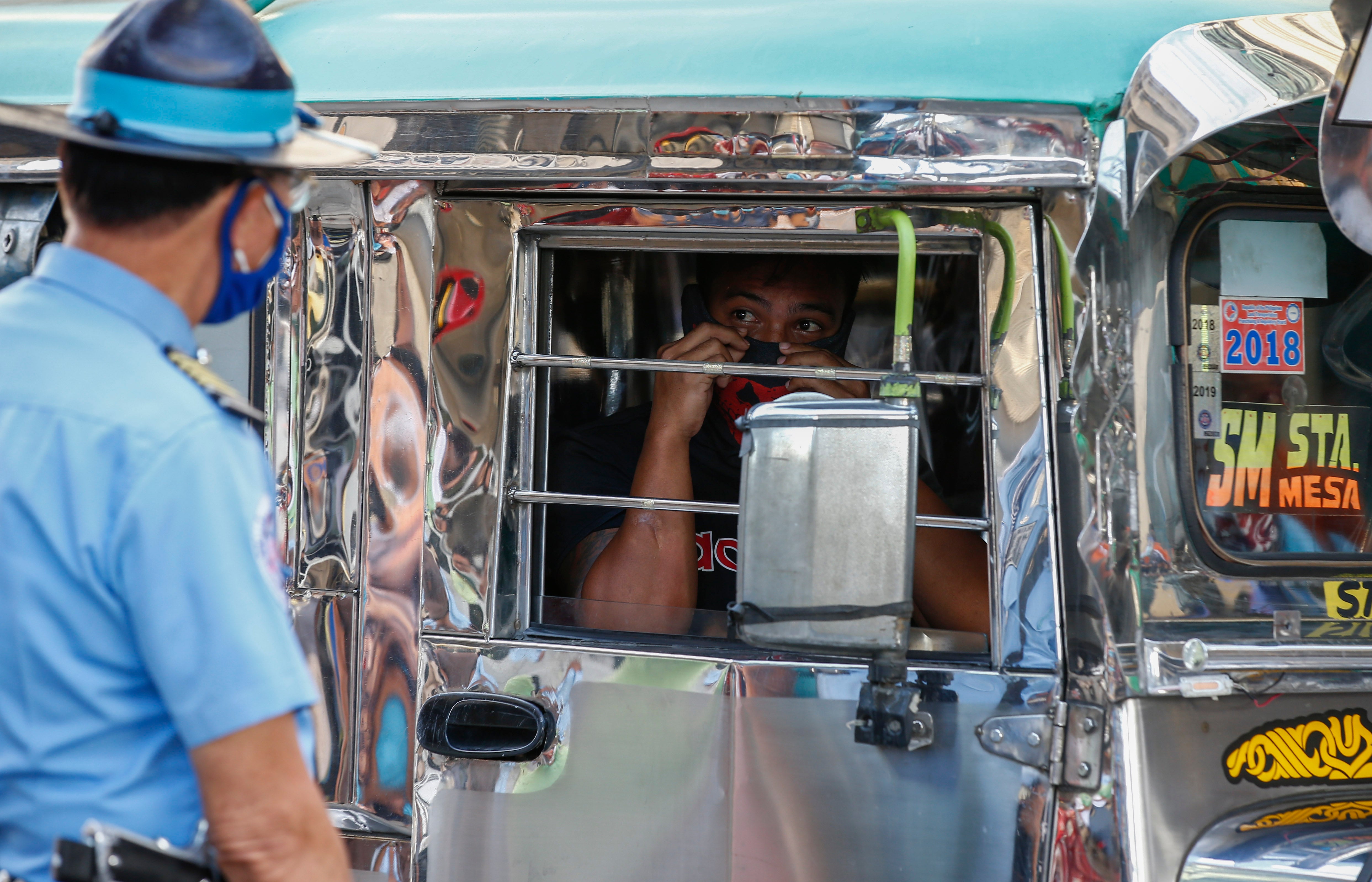Philippines to ban unvaccinated from public transport in Manila
Country’s human rights commission labels move ‘discriminatory’

Your support helps us to tell the story
From reproductive rights to climate change to Big Tech, The Independent is on the ground when the story is developing. Whether it's investigating the financials of Elon Musk's pro-Trump PAC or producing our latest documentary, 'The A Word', which shines a light on the American women fighting for reproductive rights, we know how important it is to parse out the facts from the messaging.
At such a critical moment in US history, we need reporters on the ground. Your donation allows us to keep sending journalists to speak to both sides of the story.
The Independent is trusted by Americans across the entire political spectrum. And unlike many other quality news outlets, we choose not to lock Americans out of our reporting and analysis with paywalls. We believe quality journalism should be available to everyone, paid for by those who can afford it.
Your support makes all the difference.Unvaccinated people in the Philippines will be banned from public transport from next week, amid a significant jump in coronavirus cases.
The country saw an all-time high of 37,207 daily infections on Friday, the fifth time in the past fortnight that a new record has been set.
Although the Philippines’ human rights commission has called the policy discriminatory, the government will push ahead with its plan to bar the unjabbed from taking public transport in the capital region, whose population is around 13 million.
On Friday, the transport minister said the move was needed to stem the spread of the disease and to stop the country’s healthcare services from being overwhelmed.
Roughly half of the country’s 110 million people are fully jabbed, but the vaccination rate is much higher in the capital Manila and the surrounding area, where the ban will come into force.
However, children, unregistered migrants and some elderly people living in the region have not received their doses, according to the authorities.
Ahead of the transport ban, the interior ministry told community leaders to compile lists of the unvaccinated.
This request could lead to privacy breaches and other human rights violations, the detained senator Leila De Lima said, comparing the lists to those drawn up during the president’s deadly war on drugs.
Earlier this month, president Rodrigo Duterte threatened unvaccinated people with arrest, while encouraging local officials to confine those who had not been immunised against Covid-19 to their homes.
"If he refuses, if he goes out of his house and goes around the community, he can be restrained. If he refuses, the captain is empowered now to arrest recalcitrant persons," he said last Thursday.
"I am responsible for the safety and well being of every Filipino," he added by way of explanation.
The Philippines has so far registered 3.12 million Covid-19 cases and more than 53,000 deaths from the virus.
Additional reporting by Reuters
Join our commenting forum
Join thought-provoking conversations, follow other Independent readers and see their replies
Comments